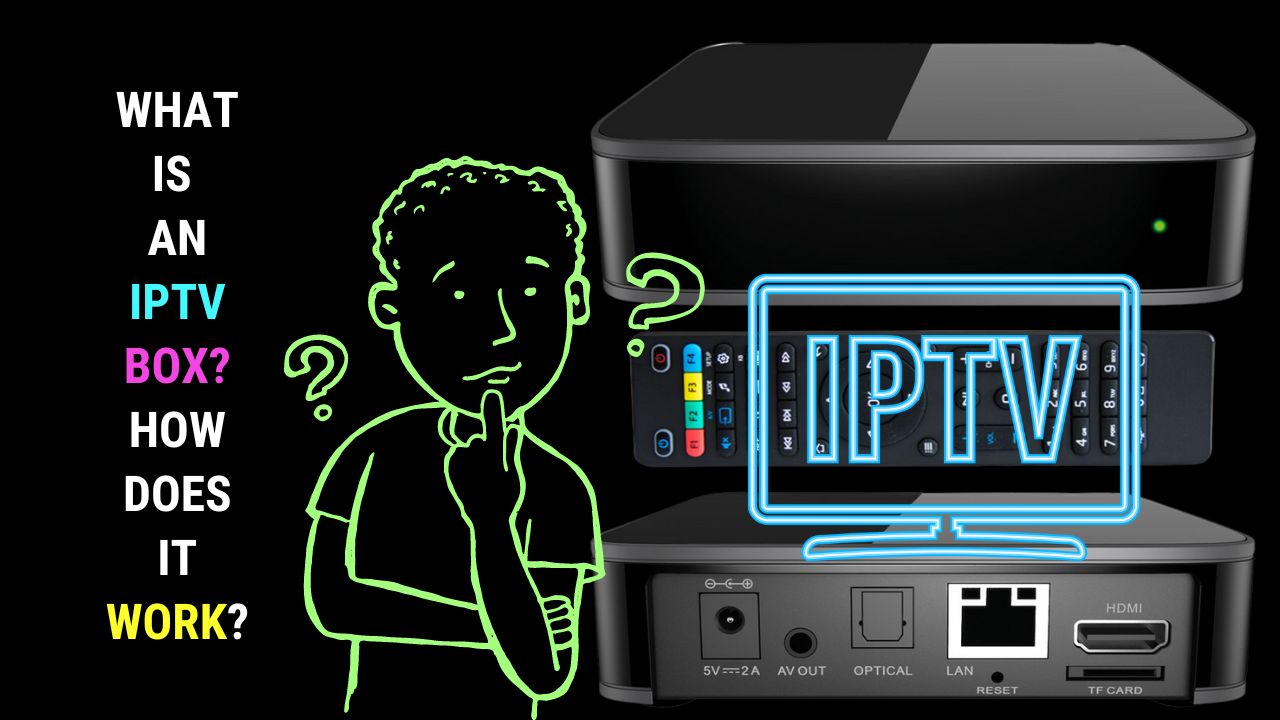Explained: How IPTV Subscriptions Work
Explained: How IPTV Subscriptions Work
Blog Article

In today’s digital age, the way we consume television and video content has evolved dramatically. One of the most significant changes has been the rise of IPTV, or Internet Protocol Television. This technology allows viewers to stream television programs and movies over the internet, bypassing traditional cable or satellite services. An increasing number of people are turning to IPTV subscriptions as a cost-effective and flexible alternative to conventional television viewing.
The concept of abonnement IPTV, or IPTV subscription, has gained traction for its ability to offer a wide array of channels and on-demand content tailored to individual preferences. With various service providers available, understanding how these subscriptions work is essential for anyone looking to enhance their viewing experience. By subscribing to an IPTV service, users can access live broadcasts, catch-up TV, and extensive libraries of films and series, all from the comfort of their own devices. As we explore more about IPTV subscriptions, we will delve into the different options available, their benefits, and how to choose the right service for your needs.
What is IPTV?
IPTV, or Internet Protocol Television, refers to the delivery of television content over the internet instead of through traditional cable or satellite methods. This technology allows users to stream live television programs, as well as on-demand video content, directly to their devices. The foundation of IPTV is based on the use of Internet Protocol, which is similar to how data is transmitted on the web, providing flexibility and interactivity to viewers.
IPTV Abonnement Avec Guide TV
A key aspect of IPTV is that it allows for a more personalized viewing experience. Subscribers can choose from various subscription plans, which provide access to different channels and content libraries according to their preferences. This makes it possible for individuals to curate their own entertainment options, ranging from sports channels to international programming, all accessible from a single platform.
Furthermore, IPTV can be used across multiple devices, including smart TVs, laptops, smartphones, and tablets. This versatility allows users to watch their favorite shows and movies from virtually anywhere, as long as they have an internet connection. With its growing popularity, IPTV subscriptions are becoming a significant alternative to traditional television services, appealing to consumers who value convenience and a wide range of content options.
How IPTV Subscriptions Function
IPTV subscriptions offer users access to television programming through internet connections rather than traditional cable or satellite services. When a user subscribes to an IPTV service, they usually pay a monthly or yearly fee to gain access to a library of channels and on-demand content. The service provider delivers this content over the internet, allowing subscribers to stream live TV and other programming at their convenience.
Once subscribed, users can access IPTV content through various devices such as smart TVs, smartphones, tablets, and set-top boxes. The subscription provides a user account, which enables access to a specific channel lineup and features. Depending on the service, users may also have the option to record shows, pause live TV, or access video-on-demand libraries, creating a highly flexible viewing experience.
The technology behind IPTV subscriptions involves encoding video content and transmitting it using internet protocols. This means that users need a reliable internet connection to ensure seamless streaming. Subscribers should choose a plan that fits their viewing habits, as some services offer different packages with varying numbers of channels and features tailored to specific preferences.
Benefits and Drawbacks of IPTV Subscriptions
One of the main benefits of IPTV subscriptions is their flexibility and convenience. Users can enjoy a wide range of channels and content without being tied to traditional cable contracts. This allows for easy access to international programming, specialized channels, and on-demand content that often includes the latest movies and series. Moreover, many IPTV services offer high-definition streaming, enhancing the viewing experience.
Another advantage is the cost-effectiveness of IPTV compared to traditional cable services. Many IPTV providers offer competitive pricing with various packages tailored to different viewing preferences. Users can select packages that include only the channels they want, potentially leading to significant savings. Additionally, the availability of streaming on multiple devices, such as smartphones, tablets, and smart TVs, further increases its appeal.
However, there are drawbacks to consider when opting for an IPTV subscription. A key concern is the reliability of the service, as streaming quality can vary depending on internet connection speeds and server performance. Some users might encounter buffering, lag, or service interruptions. Furthermore, the legality of certain IPTV services can be questionable, with some providers offering pirated content. This risks potential legal issues for subscribers, making it crucial to choose reputable services.
Report this page